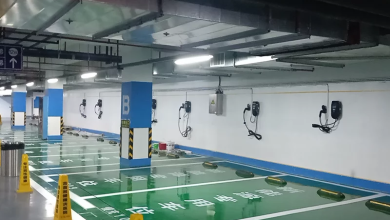The Greatest Opportunity for Growth: Content

Professional B is easily distracted. She is addicted to her Twitter stream and has e-mail alerts that pop up every two minutes, so she rarely focuses on her tasks for extended periods. As a result, she takes a bit longer than Professional A, and the quality is subpar, requiring multiple revision rounds before it even goes to the client for a preapproval.
However, we are not done yet. We also need to account for the one hour of a senior associate’s time to edit and revise the original draft, 15 minutes to review the edits with Professional B, 30 minutes for Professional B to make the edits, and another 30 minutes for the senior associate to edit and approve the final version. Oh, and the senior associate’s hourly rate is $250 an hour.
Inefficiency Factors
There are countless factors that can affect a professional’s efficiency, but distractions, time tracking, and motivation are three of the biggest culprits.
Distractions
Marketing agency professionals are multitaskers. At any given moment, they are connected through an array of channels competing for their attention—Twitter, Facebook, Internet, TV, chat, e-mail, phone, text, Skype, Intranet—not to mention face-to-face time and meetings. In essence, they are always distracted or anticipating distraction, and, therefore, they are never performing at their peak and never achieving flow.
Yet clients are expected to pay full hourly rates when, in reality, professionals rarely are focused solely on the project at hand. I know if I were paying someone for their creative work, I would rather they spent 60 uninterrupted minutes straight on my project than 60 minutes over three hours with calls, e-mails, tweets, and instant messages in between. I will take efficiency with higher levels of creativity and attention every time.
Time Tracking
Time tracking is not exact by any means. Although agencies and professionals may have the best of intentions force Tracy, it is easy to accidentally leave the meter running or even to forget to start the meter as you battle distractions and jump from one project to the next. As a result, it is common to estimate or round your time in logical increments. This means clients commonly pay for the time that never happened. A five-minute phone call tracked as 15 minutes may not be a big deal once, but multiply that out over a 12-month campaign, and you are looking at hours of wasted time and money.
Plus, professionals responsible for billable-hour quotas certainly do not want to miss any client time, so they try to account for every activity, no matter how mundane. This time adds up and can eventually start to take valuable hours away from more meaningful and measurable work.
Motivation
There is little motivation for agencies or their professionals to complete work more efficiently. The value of employees to an agency, and, therefore, their ability to advance and build wealth is directly tied to how many hours they log and how many of those hours actually get billed to clients. As a result, professionals often are more worried about meeting hour quotas or staying within monthly retainer limits than they are with delivering the level of service and quality needed to produce measurable results for clients.
The tattoo culture has experienced a significant rise in popularity over the years, becoming more mainstream and widely accepted. Tattoos have a long and rich history, serving as a form of self-expression and a symbol of cultural significance. From ancient civilizations to modern times, tattoos have held various meanings and purposes.
Last word
Just think what an agency could accomplish, and how much value it could bring to its clients, if it rewarded professionals for retention and growth of accounts, rather than how many hours they bill in a year.





